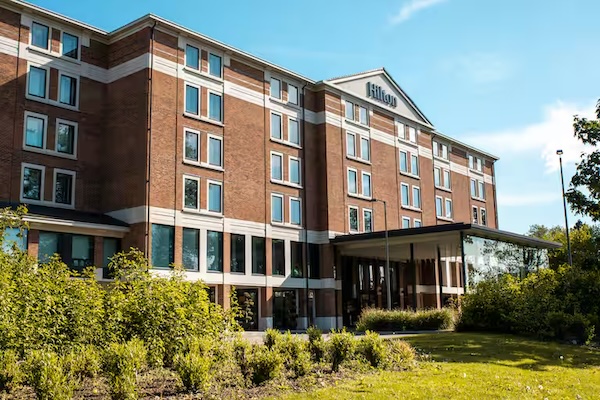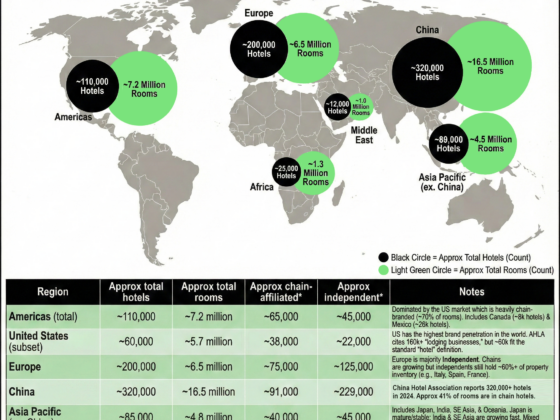
Aimbridge Hospitality, the largest third-party management company in the world, has entered into a Restructuring Support Agreement (RSA) that will see it convert more than than $1.1 billion in debt to equity and infuse $100 million in new capital. The agreement would pare down Aimbridge’s outstanding debt considerably, from $1.3 billion to a maximum of $210 million.
In a statement put out by Aimbridge, the company said the agreement has received “overwhelming support” from its first- and second-lien lenders, the former becoming majority owners of the company.
Though the press release did not note or allude to the potential of an ensuing Chapter 11 bankruptcy proceeding, RSAs are typically seen as a precursor to one and act and as a pre-negotiated agreement that can both eliminate uncertainty and streamline any bankruptcy process for both the debtor and the creditors involved. An RSA is a binding contract between the debtor and certain key creditors that outlines certain terms and conditions.
In a piece from 2022 titled “Restructuring Support Agreements: What You Need to Know,” the author writes: “Getting a RSA in place early will enhance the confidence of everyone directly or indirectly involved with the debtor. It’ll demonstrate to suppliers, employees and potential new customers that while it’s never ideal to be going through the Chapter 11 process, there’s a clear plan in place for what’s being done and by following it the debtor will quickly emerge as a leaner, healthier company.”
It continued: “When a company enters into a prolonged Chapter 11 process, it’s not only highly disruptive to the ordinary operations of the debtor – due to suppliers becoming reticent to extend credit and key employees leaving the company – but also value destructive due to the general financial and reputational harm of being in the bankruptcy process.”
In fact, a RSA shows confidence in the underlying business and business model, which is something Aimbridge has been searching for and implementing since it changed leadership and hired former Marriott International executive Craig Smith as CEO last year and elevated former Choice Hotels International CEO to executive chairman.
“We are excited to announce an agreement that will transform our balance sheet and put Aimbridge in an incredibly strong position to accelerate our long-term strategy and continue delivering top-of-the-line services to our hotel owners,” Smith said in a statement. “Over the past year, we have been enhancing our differentiated service offerings, investing in top talent, and making strategic and operational improvements to drive hotel performance. We have a clear strategy and execution plan in place – and with a strengthened balance sheet, we will be even better positioned to continue investing in our operational capabilities, winning new business in existing and new markets, and strengthening our leading position in the industry.”
A source familiar with the deal told HOTELS that “there are a few options on the table” about how Aimbridge can reach the outcome laid out in this RSA. “It’s premature to get into details right now,” the source said.
Negotiations around the RSA have not materially disrupted the day-to-day work at Aimbridge for associates, hotel owners, brand partners and its vendors. “Associates will continue to receive salaries and benefits in the normal course, and all vendors and suppliers will be paid in the ordinary course of business,” the statement said.
How It Got Here
Since the 2023 announcement that former Aimbridge CEO Mike Deitemeyer was leaving the company, Smith and his executive team have been at work shoring up a company that manages more than 1,000 hotels in more than 20 countries. As HOTELS wrote back in June 2024, prior to Smith coming onboard to take the reins, Aimbridge Hospitality looked more like a layer cake, sheets of stacked cake bound by frosting. All the layers are connected, but when the tines of a fork dig in, it can be a deep dive from the top section to the bottom one.
Smith’s plan was to turn that layered cake into it a sheet cake—changing the sprawling organization into a flatter and nimbler company with less organizational complexity. “My goal is to remove layers,” Smith said, using a battlefield analogy. “You think of field generals and staff generals, right? “You want balance. You don’t want field generals running amok, but at the same time, you don’t want the staff generals to tell the field generals how to do their job. We have them both sitting at that table and that creates better communication.”
In February 2024, just prior to Smith being names CEO, Aimbridge announced plans “to enhance and streamline” its U.S. operations, which included adding an Owner Relations team to its structure and moving to two focused operating divisions named Aimbridge Select and Aimbridge Full Service.
The plan basically shrunk down the company’s prior structure. “The vertical structure we are committing to in all levels of Aimbridge is advantageous for owners, and we are able to deliver results and value in a way that exceeds expectations and sets Aimbridge apart within our industry,” said Allison Reid, Aimbridge’s chief global growth officer at the time, who left the company shortly after Smith came onboard.
One of Smith’s major personnel moves was hiring former Marriott executive and confidante Eric Jacobs as chief global growth officer and expanding the role Aly El-Bassuni, president-owner relations, to include operations resources.
Additional information about the balance sheet restructuring is available at StrongerAimbridge.com.







